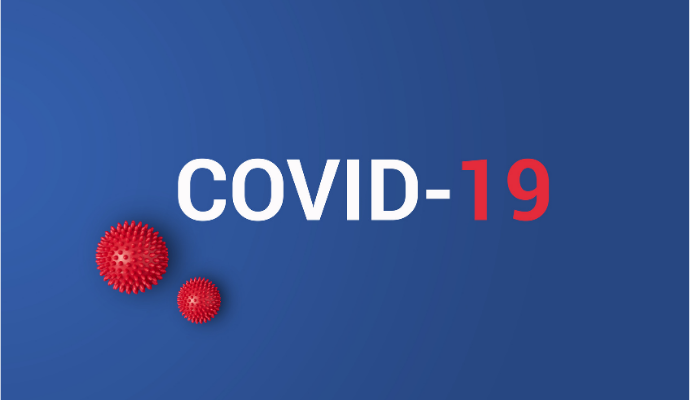FDA Grants Emergency Authorization For Eli Lilly’s COVID-19 Antibody
In other COVID news, WHO grants Roche’s Actemra prequalification for COVID-19 in adults and Gilead’s COVID-19 treatment was well tolerated in pediatric patients.

Source: Getty Images
- FDA recently issued emergency use authorization for Eli Lilly and Company’s monoclonal antibody, bebtelovimab, which retains activity against the omicron variant.
The agency authorized the treatment for mild to moderate COVID-19 in adults and pediatric patients 12 years of age and older at high risk of severe disease, including hospitalization or death, and for whom alternative treatment options are not accessible or clinically appropriate.
Notably, bebtelovimab is not authorized for patients hospitalized due to COVID-19 or who require oxygen therapy. Monoclonal antibodies may be associated with worse clinical outcomes when administered to these patients.
“Today’s action makes available another monoclonal antibody that shows activity against omicron, at a time when we are seeking to further increase supply,” Patrizia Cavazzoni, MD, director of the FDA’s Center for Drug Evaluation and Research, said in the announcement.
“This authorization is an important step in meeting the need for more tools to treat patients as new variants of the virus continue to emerge,” Cavazzoni continued.
FDA based its decision on data from a Phase 2 trial evaluating the efficacy of bebtelovimab alone and combined with other monoclonal antibodies, and in the trial, bebtelovimab reduced time to sustained symptom resolution compared to placebo and reduced viral load relative to placebo on Day 5.
Additionally, COVID-19-related hospitalization and death rates through Day 29 were generally lower than the placebo rate reported in prior trials of other monoclonal antibodies in high-risk patients.
WHO Grants Roche’s Actemra Prequalification for COVID-19 in Adults
The World Health Organization (WHO) recently granted Roche’s Actemra/RoActemra prequalification for COVID-19 in adults receiving systemic corticosteroids and requiring supplementation oxygen or mechanical ventilation.
Last year, WHO’s Therapeutics and COVID-19 Living Guideline recommended Actemra/ RoActemra and Ronapreve, or REGEN-COV in the US. Since then, Roche has established an access approach to improve the availability of both medicines globally.
For example, the company will provide Actemra/RoActemra at cost to WHO and partners of the Access to COVID-19 Tools Accelerator (ACT-A) Initiative for distribution in low- and middle-income countries in line with public health needs.
Roche will also work with ACT-A partners/UNICEF to donate Ronapreve and Regeneron to support the most vulnerable communities in low-and middle-income countries. Additionally, Roche has enabled more than 1.2 billion COVID-19 tests since the start of the pandemic.
“People from many low- and middle-income countries continue to feel the devastating impact of COVID-19, and care needs remain unprecedented,” Bill Anderson, CEO of Roche, said in the announcement.
“We’ve partnered with WHO and others throughout the last year to ensure that our COVID-19 medicines and tests can potentially reach more than 100 low- and middle-income countries, and WHO’s prequalification of Actemra/RoActemra is just one of the paths taken together to achieve this,” Anderson continued.
Gilead’s COVID-19 Treatment Well Tolerated Among Pediatric Patients
Gilead recently announced that its COVID-19 treatment, Veklury (remdesivir), was generally well tolerated among pediatric patients hospitalized with the virus.
The Phase 2/3 study enrolled 53 pediatric patients across five cohorts. Over half (57 %percent) were on high-flow oxygen, mechanical ventilation, or extracorporeal membrane oxygenation (ECMO) at baseline. Of the 53 patients, researchers identified no new safety signals.
Additionally, 85 percent of patients showed clinical improvement, and the recovery rate was 83 percent at the last assessment. Gilead submitted this clinical trial data to FDA, EMA, and other regulatory agencies.
“More children are being hospitalized with COVID-19 than ever before, and up to a third of them require admission to intensive care units. We need antiviral options that can help children recover faster and leave the hospital sooner,” Amina Ahmed, MD, FAPP, an epidemiologist, and professor of infectious disease at Atrium Health’s Levine Children’s Hospital, said in the announcement.
“Remdesivir can potentially provide meaningful clinical improvement, by reducing disease severity and returning children home to their families more quickly,” Ahmed continued.
Last month, FDA expanded the pediatric emergency use authorization of remdesivir to include non-hospitalized pediatric patients younger than 12 years of age or weighing less than 88 pounds at high risk of disease progression.
